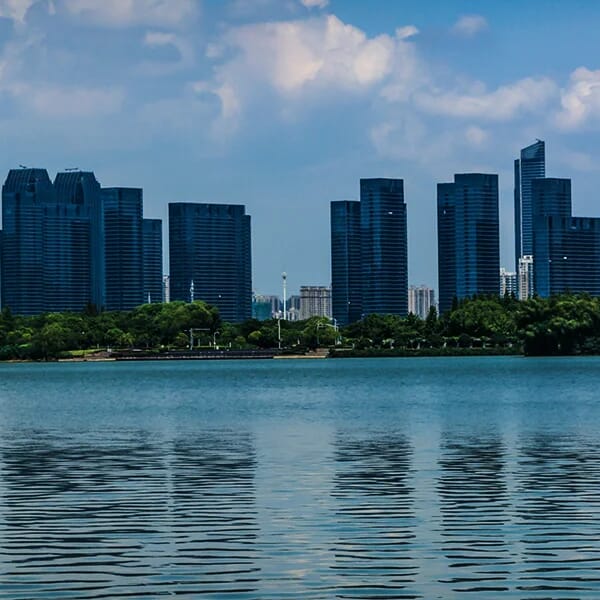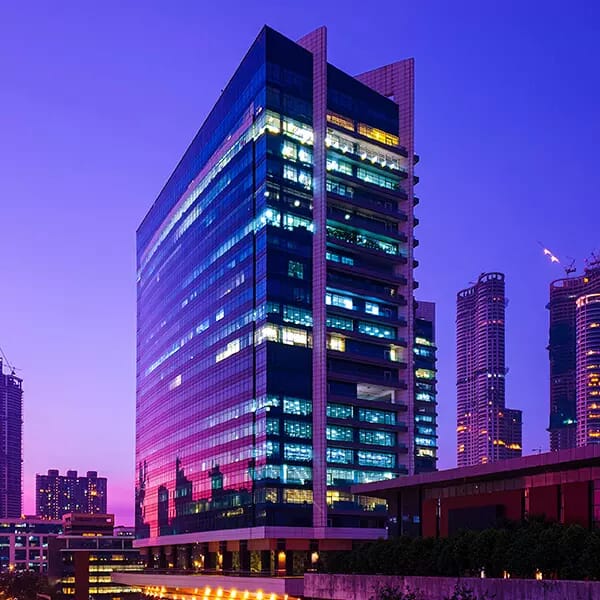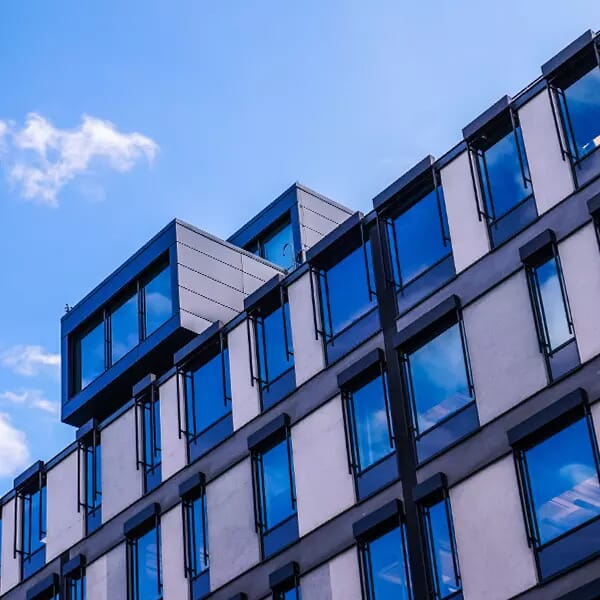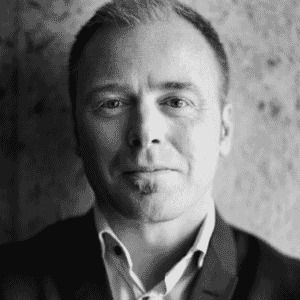 Crédito: Arnaud Mesureur / Unsplash
Crédito: Arnaud Mesureur / UnsplashEngaging the Customer on Sustainability
GRI Global Sustainable Hospitality Committee - July Edition
MODERATED & AUTHORED BY:
 |
Xenia zu Hohenlohe
Managing Partner and Co-Founder, Considerate Group Advisory Board, Berkeley Capital Group (BCG) |
‘ENGAGING THE CUSTOMER ON SUSTAINABILITY’
Session Highlights
Customer engagement is important, but it is not just customers we talk about. It is also about other stakeholders – investors, suppliers, partners. Communication is about transparency and the need to avoid greenwashing. It is about communicating transparently where you are at. It doesn’t matter where you are; if you are communicating – be honest about that. It is one of the key issues in communication of sustainability and ESG.Communication is also about capturing people attention to what you are doing. It helps to position your brand. It is also about making emotional connections. Make the message accessible to all of your customers, all of the levels, age groups, regional, geographical differences, etc.
At Considerate Group, we use our B Corp Certification to give our messaging legitimacy and credibility, it has become part of our corporate branding.
Market Trends – the talk about what customers are expecting.
-
58% of consumers say they are thinking more about sustainability now than before COVID-19
-
53% of millennials say they would avoid a brand if it were associated with poor environmental or social standards
-
70% of global travellers say they would be more likely to book an accommodation knowing it was eco-friendly
-
etc.
-
Scandic was one of the first to communicate sustainability and made it part of their brand and DNA.
-
Hilton and IHG one of the first US companies to communicate what they do to reduce emissions.
-
Host Hotels marked as GreenLeaders by Tripadvisor.
-
Hilton has their own brand – Travel with Purpose. It is not very accessible on their website but it is worth diving into when found.
-
IHG has easy to find page, it is located straight on first page and dive into the details on what they do.
-
Hyatt has Hyatt Thrive – visually not very appealing but with technical details.
-
Accor Planet 21 – easy to find, full of good information, very visual.
-
Oetker Collection – also has it.
-
Important: all of the brands have a motto, slogan or a name attached to their ESG / sustainability journeys/agendas/strategies.
Other way of engaging customer and communicating is through certifications/accreditations – the ones presented here are only for operators. Problem is that all of them didn’t do consumer-facing communication work. They are not recognized by consumers. Consumers don’t know about the content.
What are the different channels that you can/should communicate?
-
Sustainability Reports - should be visually beautifully prepared. Visually appealing, clearly structured, not too overwhelming.
-
Websites - For example, section on the Six Senses website is very beautiful, make it very clear and beautiful.
Pandox have also on website their sustainability page and various sections.
-
Communicating Data - showing where we are at, what we are doing – for example, Considerate Group website. You turn it into infographics to make it more understandable. Take data and create into infographics or turn the data into something visually attractive, for imagination.
-
Social Media channels - postings on Instagram, Facebook, etc.
-
Newsletter - make beautiful visually.
-
Products and Guest amenities - how you position your sustainability products in your hotel, what messaging you can give. It can also be a source of good photos for your social media. Good photography is extremely important to communicate.
-
Guest experiences are also important, for example, beach clean-up. For some experiences you can also charge money for revenue streams. For example, trip to food producers to make sustainable engagement with the community or conservation, coral reef restoration.
It was just an overview of what you can do to engage with customers and other stakeholders. We all need each other support to drive sustainability forward. Good starting point for discussion.
There are many brands doing great on their sustainability agenda, but they don’t communicate it good. They are not showcasing what they are doing.
Catherine Dolton – IHG – Operator Side: we have done a lot of commitments, putting a name, creating specific story, showing that it is our journey and that we all need to collaborate. It did not replace anything. For us [operators] one thing that was coming especially this year is corporate customers. How we talk and deal with the number of requests for information from corporate customers - providing data around carbon footprint, water, dedicated calls about strategies, filling our questionnaires, etc. A lot of those big clients have their own reportings to make. They are looking to think how they can push it all to us. They say they will not travel with any hotel who are not addressing 1.5-degree target which is very ambitious. There is lots around how you package and talk to individual guests, but to us [IHG] is a big thing is what big corporate customers want.
It was agreed that those communications formats – to corporate and individual customers - are very different between each other. Hotels spend too much time on it.
GreenStay rating was discussed. It is about rating hotels on corporate platform of HRS based on their sustainability strategy (A,B,C,D,E-rated) – there is so much happening in the space. Many participants were not aware of GreenStay. Booking.com has also introduced criteria but it is so much work just trying to keep track of all the new systems/platforms, it is already a massive task.
Prof. Dr. Willy Legrand has talked about the issues and huge challenges. Using Cornell benchmark as a shortcut can also be an issue. Properties are trying to categorize themselves, but it is dangerous as some properties who do great on sustainability can be left behind. There are also large players representing corporate clients that have their own systems.
Corporate clients are interested in Scope 3 emissions, which is their corporate travel. There are also individual travelers and for them Scope 3 emissions are irrelevant, but no plastic usage/vegan food options are of a bigger interest. There are so many different levels of questions, and it can be hospitality industry leading this initiative of alignment rather than corporate clients as there are 1000s of them. As an industry we need to take the lead via some alliances or organisations or representative institutions. The differences go in all sorts of directions, even the level of details such as amenities. Some form of standardization and alignments needs to take place here.
It should be a cross industry initiative and something like a baseline should be created. There will be always specifications for specific markets but a baseline should be there.
There was also a discussion about something like rating for an average consumer – without too many details. Tripadvisor had it a while ago – GreenLeaders – they wanted to launch version 2 of it but it did not happen. The question is why?
Filtering for Bookers – it can be arguable that if every single hotel follows a global standard, it could become a shortcut as it goes against some of the large hotel companies who have their own strong systems and see no need to be certified by someone else when their own in-house system is strong enough.
GSTC works on accreditation of the sustainability certifications such as the ones from Hilton and others. Being accredited by GSTC could be a solution/shortcut. Six Senses are currently going through GSTC accreditation now. If there is a mother of certifications, it is GSTC. It is a great policy framework, and everything is covered but it doesn’t go in details about carbon or plastic. GSTC provide a base to work from, but key is a third-party approach (which is missing from OTAs Systems).
OTAs might be another solution facing consumers’ easy understanding. They are not unbiased though, but maybe there should be a simplified solution. Maybe Tripadvisor was missing someone like GSTC as credibility within the users could be missing.
Issue with Tripadvisor’s GreenLeaders was, first of all, that they did not realize that they were getting a clash from both hoteliers and customers. From hoteliers because the certification was accused to mislead the audience because it was just a program. So Tripadvisor had a lot of behind the scene battles - how to position the program against certifications and if it is reliable. The second level of problems they faced is that it was extremely expensive to check and validate thousands of hotels every year. They started with self-assessment mechanism, but consumers questioned if program was truthful to rely on.
At the discussion we have various stakeholders, and we have what is needed and we understand what it is. No one really knows what they should prioritise, that’s why everyone asks hundred queries. Maybe we can influence it and discuss it? It is a lot of work. It would be good to have OTAs in conversation. There is definitely an interest from OTAs side, but they also struggle – what criteria they set, what should be used and asked.
The issue is that some companies do not wish to showcase what they do in terms of sustainability as they are scared that someone will come and say – ‘you don’t do x y z’. Everyone is not certain what to showcase. As we have seen through websites, now every operator showcase their sustainability in different ways.
Diversity has been discussed as an example of a massive tickbox and the issue is that some clients don’t understand the relevance of some of the questions asked. Moreover, there should be an alignment across the sectors – even hospitality and real estate sectors have so much difference between those sectors and requirements, although there should be similar. It could be very beneficial at least to try to find some very simple basic requirements.
We need to bring everyone to the discussion, better define it and afterwards, work on solving the issue and prioritizing.
There was a question if hotels track how many visits they have on their sustainability pages and if they can see how many people go through this section before they book. But as the result, this data would be hard to look or it was not a big priority to look at.
Another issue discussed is that no hotel operator is demanding on green development of the hotel asset. The demand should go through the whole chain. We need to have higher standards put to developments, funders, etc. and there must be more push and demand from the brand. The more you demand from developers, the easier it will become. Following the discussion, IHG mentioned that for franchise brands the economics and costs are in question. At least at US we are not quite at tipping point yet where sustainability gets more important for investors. So, it can become less attractive for investors to invest in IHG franchise if there is a push.
We got one stakeholder group - asset owners and managers, one - designers and developers and one are the operators. Bringing everyone together is important to have a conversation together, sitting around the table. It is also on investor side to demand, not just operators’ level.
We also have to put more efforts on refurbishment and rebuilding on a regular basis.
Investors are not particularly seeing that we can increase ADR or GOP of hotels because of any particular sustainability feature, but what we do see is that assets that are not energy efficient, not sensible to waste, recycling, water management and other things related with the level of service – those assets are then less liquid. When we build a portfolio, that’s where definitely sustainability is already something we are seeing very much. What is the cost of improving energy efficiency? Sometimes it is also not possible to get to that level and thus, the biggest concern is taxes and obligations to make our properties more energy efficient at a faster rate. But it is already a reality at least in Europe that assets that are more sustainable across all the aspects, those are already at the lower CAP rate, therefore at the higher replacement valuation for the same ADR, GOP. Same ADR, same GOP will be valued more if it is coming from a more sustainable asset.
Conclusion (by the moderator):
There seems to be a very pressing need to address the issue around alignment for RFP and RFI processes and it would make sense to get a working group set up with Sustainable Hospitality Alliance and some of the key stakeholders, such as certification bodies, corporate Chief Sustainability Officers both from hotels as well as from other sectors (representing the corporate clients) and potentially also someone like HRS booking platform to start making first assessments of needs and requirements.







